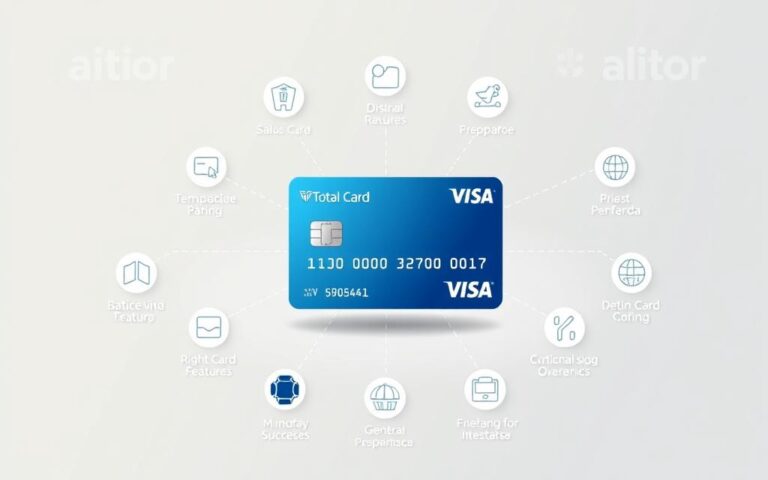Advertisement
Did you know a fact about Harvard MBA grads? Only 3% have their financial goals written down. Yet, they make ten times more than their classmates after ten years. This shows how vital financial planning is. Anyone can achieve financial freedom before 40, not just the rich. This freedom means managing money well, making smart investments, and saving for retirement without stress.
Starting your journey to wealth means firstly understanding where you stand financially. Then, set clear, achievable goals. By developing a solid mindset about money and following disciplined habits, you can make your dreams come true. The next sections will give you key strategies for staying on the path to a secure and wealthy future.
Understanding Financial Freedom
Achieving financial independence is a key goal for many. It means not letting money control your life choices. Financial freedom allows you to cover living costs and achieve dreams without money worries.
What is Financial Freedom?
Financial freedom means having enough to handle daily needs and future plans. It combines passive income, smart investments, and spending wisely. It’s not just about being rich. It’s about having the freedom to work less and enjoy life more. This might include travel or hobbies. About 44% of people see reaching a certain net worth as key to financial freedom.
The Importance of Financial Freedom
Understanding financial freedom helps aim for a more secure future. It reduces money stress, leading to better lifestyle choices. For example, budgeting is crucial. Keeping on top of expenses and saving helps meet financial goals. This freedom also cuts reliance on others for money, as 47% of people said in a survey.
- Reduces financial anxiety
- Enhances lifestyle choices
- Builds a secure foundation for future generations
Also, good credit is vital for loan and insurance options. Planning for retirement, like investing in a 401(k), is crucial for a comfortable future.
| Indicator of Financial Freedom | Percentage of Respondents |
|---|---|
| Not needing financial assistance from family | 47% |
| Achieving a specific net worth | 44% |
| Regularly contributing to a 401(k) | 42% |
In summary, financial freedom has many aspects. It involves creating income and assets for long-term security. This lets you live the life you choose.
Assessing Your Current Financial Situation
Starting on the path to financial freedom requires a deep look at where you stand financially. This means checking your income and knowing the difference between what you own and what you owe. Understanding this will help you better use your money and keep debts in check.
Evaluating Income Sources
Your income is key to your financial plan. Make sure to keep track of money from your job, side jobs, or investments. Knowing where your money comes from helps you find ways to increase your Cash Flow Optimization. This way, you can make more money by adjusting your income sources.
Understanding Assets vs. Liabilities
Knowing what assets and liabilities are is important for money smarts. Assets put money in your pocket or grow in value over time. Liabilities take money out and include things like credit card bills and loans. Below is a look at what falls into each category:
| Assets | Liabilities |
|---|---|
| Real Estate | Mortgage Debt |
| Investments (Stocks, Bonds) | Credit Card Debt |
| Business Ownership | Personal Loans |
| Retirement Accounts (401(k), IRA) | Student Loans |
Work on growing your assets and reducing your liabilities. This is key for smart Debt Management and building a solid financial plan. Regular checks, like looking at your 401(k) and adjusting insurance, are important for your financial well-being.
Setting Clear Financial Goals
Having clear financial goals is key to gaining financial freedom. Short-term goals help with immediate needs. Long-term goals help you plan for the future. Knowing the difference and using certain frameworks improves your approach to money. This helps in building wealth.
Short-term vs. Long-term Goals
Short-term goals are for things needed within three years, like:
- Saving for an emergency fund
- Paying down a specific debt
- Setting aside money for a vacation
- Making a major purchase, like home appliances or gifts
Long-term goals, on the other hand, are for bigger dreams beyond three years. These include:
- Retirement savings
- Purchasing a home
- Funding education
- Building a business
SMART Goals Framework
The SMART goals framework makes your financial dreams doable. SMART means:
- Specific: Be clear about your goal.
- Measurable: Know how to track your progress.
- Achievable: Your goal should be realistic.
- Relevant: Your goal should fit your life goals.
- Time-bound: Set a deadline to stay motivated.
For example, rather than just wanting to save money, plan to save $5,000 for a house down payment by next year. This specificity helps in understanding money better and effectively building wealth.
Regularly check and adjust your goals to make sure they fit your financial changes. Prioritize goals by their urgency and impact. Writing down your goals helps keep you focused. It reminds you of your promise to reach financial freedom.
Creating a Budget That Works
A budget is your guide to financial freedom. You can control your money and watch your progress. Learn about budgeting strategies and tools to find what works for you.
Basic Budgeting Methods
The 50/30/20 rule is a common way to manage money. Spend 50% of your income on needs and 30% on wants. Then, use the remaining 20% for savings and paying off debt. This helps you balance spending and prioritize savings.
Zero-based budgeting makes every dollar count. You assign each dollar a job, making sure expenses match income each month. This method builds discipline, which is key to financial freedom.
Tools for Effective Budgeting
Technology can make budgeting easier. There are apps and tools to help. For example, First Sentinel Bank’s app helps track spending and income. It also offers financial calculators to set and follow budgets.
Keeping an eye on your spending is vital for budgeting. Guides like “15 Practical Budgeting Tips” and “7 Tips for Effective and Stress-Free Budgeting” offer good advice. They can help improve your budgeting skills.
Reducing and Managing Debt
Getting a handle on debt is key to gaining financial freedom, especially before you turn 40. More people are now getting credit counseling to handle their debts. This shows that many understand the need to manage debts and improve cash flow. Tackling debts with high interest, like credit card and personal loans, is very important.
Types of Debt to Focus On
Some debts need urgent attention. Here are the main ones:
- Credit Card Debt: High interest rates make this debt important to pay off quickly.
- Personal Loans: These unsecured loans can become a big problem if ignored.
- Mortgage Debt: Although interest rates are lower, big mortgage payments can be hard to handle.
- Private Student Loans: They don’t offer the same flexibility as federal loans, making them a challenge.
Strategies for Debt Repayment
Using the right strategies can help you get out of debt. Here are a few to consider:
- Avalanche Method: Pay off the debts with the highest interest rates first to save money over time.
- Snowball Method: Start by clearing the smallest debts to gain momentum. It helps build confidence as you see debts disappear.
- Debt Consolidation: Combining multiple debts into one loan with a lower interest rate makes payments easier and reduces stress.
- Credit Counseling: Work with trusted agencies for personalized debt management and financial advice.
Be careful of debt relief scams targeting those struggling financially. Knowing which financial assistance is legit is very important. A reliable credit counseling service can offer big help. They guide you through the challenges and help manage your debts effectively.
| Debt Type | Interest Rate Range | Recommended Strategy |
|---|---|---|
| Credit Card Debt | 15% – 25% | Avalanche Method |
| Personal Loans | 6% – 36% | Debt Consolidation |
| Mortgage Debt | 3% – 6% | Regular Payments + Refinancing |
| Private Student Loans | 4% – 12% | Negotiation + Counseling |
Managing debt is like running a marathon. It requires patience, discipline, and the right approach. By focusing on debt management and taking action early, you can improve your cash flow. This leads you towards financial freedom.
Building an Emergency Fund
An emergency fund is key for financial security. It helps handle sudden costs without harming your financial goals. Today’s unpredictable world makes having a safety net crucial. This protects your financial mindset and helps in wealth building. Without enough savings, many turn to credit cards or loans during emergencies. This often results in bigger financial problems later.
Importance of an Emergency Fund
Studies show that lacking an emergency fund makes it hard to recover from financial setbacks. Saving even small amounts regularly helps strengthen financial security. Start a habit of saving to see your funds grow over time. Try automatic transfers from your checking to your savings. This ensures regular contributions. Also, tax refunds and cash gifts can boost your emergency savings.
How Much Should You Save?
The needed amount for an emergency fund changes based on past unexpected expenses. Aim to save for three to six months of living expenses. Right now, only 44 percent of Americans could cover a $1,000 expense with savings. Many suggest keeping this money in safe, accessible accounts. Understanding the value of an emergency fund can lead to financial freedom.

Investing for the Future
Investing is key to financial freedom. It helps you grow your wealth and passive income. Knowing about different investments and using them wisely can make you rich.
Types of Investments to Consider
Here are some investments to boost your portfolio:
- Stocks: Buying company shares can give you growth and dividends.
- Bonds: You lend money and get interest back.
- ETFs: These give a mix of investments with low fees.
- Real Estate: Earning from rentals or value increase over time is possible.
Risk Tolerance and Asset Allocation
Knowing your comfort with risk is crucial. It helps decide how to spread your investments. Balancing risks and returns is key. Here’s how to mix investments based on your risk level:
| Risk Level | Stocks (%) | Bonds (%) | Real Estate (%) |
|---|---|---|---|
| Conservative | 20 | 50 | 30 |
| Moderate | 40 | 40 | 20 |
| Aggressive | 70 | 20 | 10 |
Learning about finances and choosing smart investments is crucial for success. Saving about 15% of your income in investments can greatly increase your wealth. A good investment plan needs time, patience, and consistency.
Increasing Your Income
Boosting your income is key to financial freedom. Exploring different ways to make more money helps in building your wealth. By focusing on side jobs and career growth, you get extra money to meet your financial goals.
Exploring Side Hustles
Look for side jobs that suit your skills and interests. Here are some popular side hustles:
- Freelancing in areas such as writing, graphic design, or web development
- Starting an online business or e-commerce store
- Investing in rental properties to earn consistent cash flow
- Creating and selling digital products, like courses or eBooks
These options help you make more money. They also open doors to increasing your wealth in the future.
Advancing Your Career
Your job can greatly increase your income. To advance in your career, you might:
- Pursuing educational opportunities or certifications relevant to your field
- Networking with industry professionals to uncover advancement opportunities
- Seeking promotions or raises based on performance and contributions
- Exploring roles with higher income potential and greater job satisfaction
Making the right career moves is crucial. Good career choices push you closer to financial freedom.
Improving Financial Literacy
Learning more about personal finance can greatly affect your path to financial freedom. You can start making smart choices that help build your wealth. It’s also important to keep up with financial trends as you plan your money matters.
Resources for Learning
There are many ways to improve your knowledge of finance. Here are some suggestions:
- Books: Consider reading highly-rated books on personal finance. These can teach you about investing and how to budget.
- Online Courses: Websites like Coursera and Udemy have courses on personal finance and how to plan your finances.
- Podcasts: Listen to podcasts like Laura D. Adams’ “Money Girl” or NPR’s “Planet Money”. These offer helpful tips and explain the economy.
- Financial Blogs: Check out Kiplinger and BetterInvesting for advice on managing money and learning to invest.
Staying Informed on Financial Trends
It’s vital to stay up to date with financial trends for smart decision-making. Here’s how to keep informed:
- Read The Wall Street Journal for news on business and finance.
- Visit the U.S. Securities and Exchange Commission’s website, Investor.gov, for helpful investment tools.
- Join financial discussions, forums, and webinars to share and gain insights.
Becoming more financially literate opens doors to financial independence. By dedicating time to learn, you get the knowledge needed for success.

| Resource Type | Examples |
|---|---|
| Books | Rich Dad Poor Dad, The Total Money Makeover |
| Online Courses | Coursera, Udemy |
| Podcasts | Money Girl, Planet Money |
| Financial Blogs | Kiplinger, BetterInvesting |
| News Resources | The Wall Street Journal, Investor.gov |
Staying Committed to Financial Freedom
Getting to financial freedom is a journey that requires persistence and the ability to adapt. You’ll face challenges like unexpected costs or changes in the market. Preparing yourself with an emergency fund for three to six months helps tackle these surprises.
Also, having good insurance for health, life, home, or auto adds protection against big financial losses. This safety net is key in managing unexpected hurdles effectively.
Overcoming Challenges
To overcome these hurdles, keep learning by attending classes, workshops, or getting certifications. This boosts your understanding and decision-making skills. Connect with experts and mentors for valuable advice.
These steps enrich your knowledge and help maintain focus on your financial goals. They ensure you’re equipped to make smart choices.
Celebrating Milestones and Progress
It’s important to celebrate your victories, no matter how small. This could be paying off a debt, achieving a savings goal, or making a wise investment. Celebrating these wins motivates you.
Regularly checking your investments helps you see your progress. It lets you adjust plans as needed. These celebrations endorse the value of persistence and long-term planning on your journey to financial independence.



